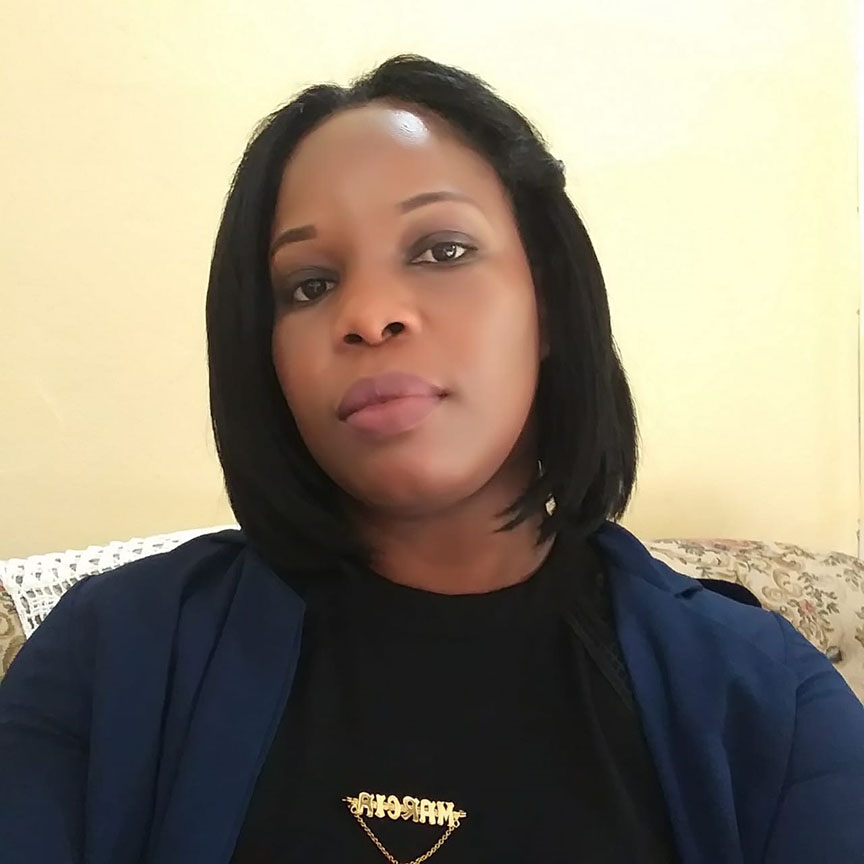Although many Guyanese continue to bear witness to the devastating effects of COVID-19 on their lives, there are some that are not so evident but no less damaging. Psychologist Marcia Yangapatty is seeking to help to change that as she works to address the psychological toll of the pandemic.
Yangapatty, a counselling psychologist, is currently spearheading a voluntary COVID-19 psychological response programme in which she counsels police officers stationed in her hometown of Linden.
The programme, Yangapatty told Stabroek Weekend, has been tailored to frontline workers who are on a daily basis seeking to cushion the impact of the pandemic on the civilian population. It is an outgrowth of her previous work with the Guyana Police Force, for which she had been conducting annual counselling sessions since 2013.
However, while past sessions had catered for large groups of ranks, COVID-19 has resulted in a change. Each counselling session now only caters for five officers per group. Each group undergoes five weekly hour-long sessions. Yangapatty is currently counselling her fourth group of officers.
While the programme has been designed specifically for dealing with the impacts of COVID-19, Yangapatty pointed out she has found that it has become an outlet for other stress-related issues as some of those she sees have shared their issues surrounding their children, families, relationships and work, among other things. “Some of the officers even want to continue their sessions as they have helped them come up with solutions for whatever problems they talk about. They have reported back that they have been able to focus better at home and work,” she said.
Apart from her efforts with frontline workers, Yangapatty is also counselling individuals from various parts of Guyana who are survivors of sexual abuse. Yangapatty, who has over the years counselled survivors of sexual abuse from Guyana, Jamaica, the United States, Canada, the Cayman Islands and the Bahamas, noted that at the beginning of the COVID-19 restrictions, she noticed a spike in persons who contacted her about being sexually abused. She shared that because persons were confined to their homes, victims of sexual abuse were locked in their homes with their sexual abusers.
Yangapatty said, too, that she also received reports of an increase in domestic violence. She noted that because some parents are without jobs or feel like they are being prevented from taking part in recreational activities, there is more tension in the homes, which has been contributing to more abuse in the home. She added that the reports have since appeared to have subsided, which she believes may be as a result of persons normalising this crisis with time.
(Last Thursday, Minister of Human Services and Social Security Dr Vindhya Persaud told a virtual meeting of Commonwealth Ministers for Women’s Affairs and Gender and Development on COVID-19 that the incidence of gender-based violence has increased over the past months with more persons at home. She also reported that there has been an upsurge in reported cases of domestic violence and the restrictions on in-person schooling has seen more girls exposed to abuse at home.)
Yangapatty is worried that the general view of mental illness in Guyana as a taboo subject persists, thereby preventing those who need it from accessing treatment. “If you’re unable to eat, unable to sleep or cope or function for two weeks or more in an environment you will normally function in, then something is wrong with you. Mental health illnesses can range from mild to moderate to severe,” she explained.
She noted that any stressors, that is any environmental condition or event which causes stress, can lead to mental illness, whether a failed exam, a broken relationship, problems at work, or a death of a loved one. The COVID-19 pandemic, she pointed out, can be considered a stressor.
However, in Guyana people only consider an illness as serious when they can see physical symptoms, Yangapatty said. People typically visit doctors when they are suffering physical ailments although these can sometimes be symptoms of mental health issues caused by stress. Some people can go insane and end up walking the streets after a long period of mental illness, she added.
Yangapatty sees psychologists as the middlemen between general physicians and psychiatrists, as well as the first line of defence in treating mental health issues that can cause physical ailments. Should mental health be taken more seriously when persons are affected only mildly, she said, then perhaps there would be fewer persons with mental illness walking the streets of Guyana today.
Yangapatty believes that local efforts to change the situation have been hindered in part by the medical establishment’s approach to psychology. She has obtained a Master’s Degree in psychology at the Northern Caribbean University in Jamaica. And prior to becoming a psychologist, she worked as a guidance counsellor at various agencies and educational institutions in Jamaica. She has also worked as a lecturer at the University of Guyana’s Institute of Distance and Continuing Education in Linden. However, Yangapatty said psychologists who have met the requirements to obtain their licenses in other jurisdictions have had to practice here without licensing because psychology isn’t properly recognised in Guyana. She added that this is reflective of the lack of priority given to mental illness in Guyana’s health care system, which in part contributes to why it is seen as a taboo subject among the general citizenry. A system and standards, she said, need to be put in place.
For Yangapatty, psychology is a passion, so much so that she often volunteers her services, such as with the sessions she is doing with the police officers in Linden. She plans on someday opening her own all-age centre where persons can seek mental health counselling.





